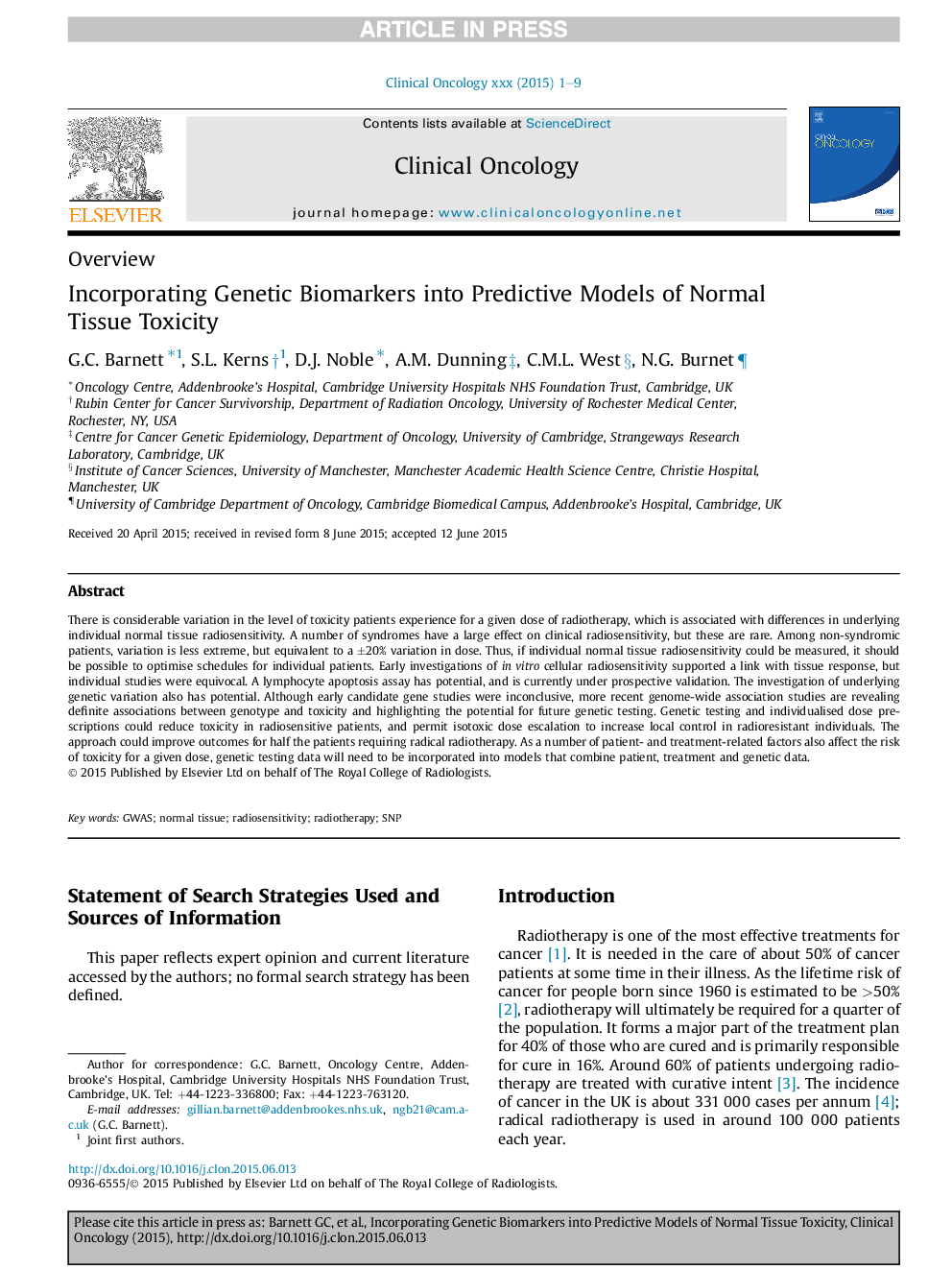| Article ID | Journal | Published Year | Pages | File Type |
|---|---|---|---|---|
| 5698562 | Clinical Oncology | 2015 | 9 Pages |
Abstract
There is considerable variation in the level of toxicity patients experience for a given dose of radiotherapy, which is associated with differences in underlying individual normal tissue radiosensitivity. A number of syndromes have a large effect on clinical radiosensitivity, but these are rare. Among non-syndromic patients, variation is less extreme, but equivalent to a ±20% variation in dose. Thus, if individual normal tissue radiosensitivity could be measured, it should be possible to optimise schedules for individual patients. Early investigations of in vitro cellular radiosensitivity supported a link with tissue response, but individual studies were equivocal. A lymphocyte apoptosis assay has potential, and is currently under prospective validation. The investigation of underlying genetic variation also has potential. Although early candidate gene studies were inconclusive, more recent genome-wide association studies are revealing definite associations between genotype and toxicity and highlighting the potential for future genetic testing. Genetic testing and individualised dose prescriptions could reduce toxicity in radiosensitive patients, and permit isotoxic dose escalation to increase local control in radioresistant individuals. The approach could improve outcomes for half the patients requiring radical radiotherapy. As a number of patient- and treatment-related factors also affect the risk of toxicity for a given dose, genetic testing data will need to be incorporated into models that combine patient, treatment and genetic data.
Related Topics
Health Sciences
Medicine and Dentistry
Oncology
Authors
G.C. Barnett, S.L. Kerns, D.J. Noble, A.M. Dunning, C.M.L. West, N.G. Burnet,
